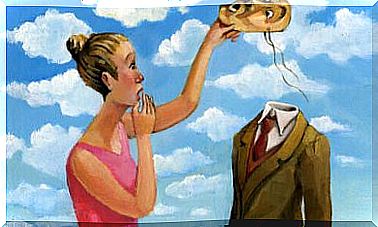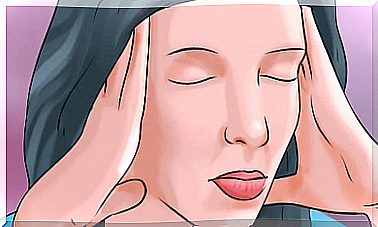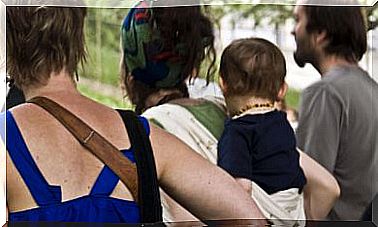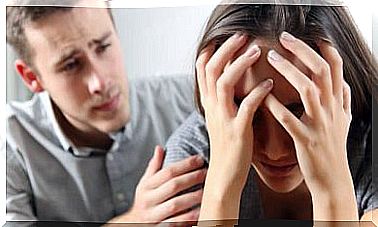Anxiety Upon Waking Up
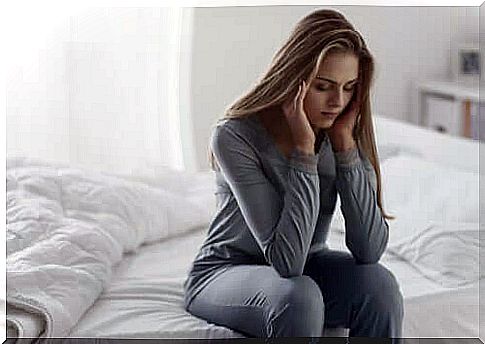
Anxiety is a complicated opponent that gives little respite. Of course, she never arrives at the most convenient time of day, and she is often present from an early age. This is waking anxiety, or morning anxiety.
The first shadow we see is those obsessive, circular thoughts, that expectation and that physiological activation. Anxiety when waking up in the morning can affect the rest of our day, generating an intense fear of obstacles or challenges that may present themselves.
Waking anxiety can be really limiting for those people who are not able to manage it properly. So, in this article, we’ll make some recommendations that, while seemingly simple, could revolutionize a day from which we only expected suffering.
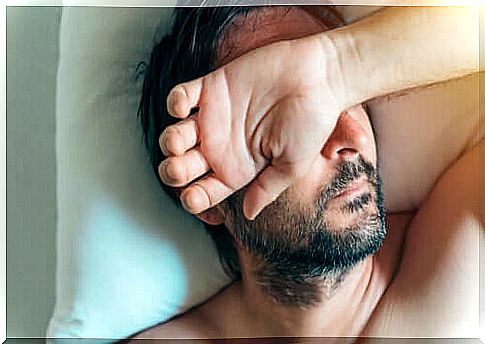
Get out of bed to face the anxiety of waking up
We open our eyes and feel anxiety. Then that feeling of restlessness begins that translates into physiological activation, possible desire to cry, disbelief in oneself, apprehensive expectation, and, at some point, not wanting to start the day.
We may have a date with an unknown person, a party with friends, the need to shop or attend internship and college. Whatever our plans for the day, the fact is that anxiety discourages us, makes us want to run away.
For that reason, it’s important to end these catastrophic thoughts that are causing our day, which has just started, to come crashing down. It’s not a coincidence that these thoughts seep into our internal dialogue when we’re in bed.
In fact, techniques such as “leisure time” prevent a person from being confronted by their obsessive thoughts both in the morning and in the evening.
Circular thoughts can intensify when a person performs an activity – like staying in bed – in which they do nothing but think. When people who have an anxiety disorder wake up, stretch, and lie in bed for another ten minutes awake, they open the doors and roll out the red carpet for that emotion, inviting it inside.
When we begin to detect signs that tell us that our anxiety is increasing, now is the time: get out of bed.
Change of plans: the same plans
Avoidance, as a strategy, will only increase anxiety. These situations do not necessarily need to be specific stimuli that always cause this activation, as in the case of a snake or a dentist appointment.
Anxiety may suggest that we don’t attend the stage, for example, as our cyclic catastrophic thoughts and despondency lead us to think that we will not be able to overcome the challenges of the activity.
Through the anxiety-avoidance-anxiety mechanism, the person may choose not to attend the internship. But that won’t reduce the anxiety in the long run – although in the short run it certainly will.
However, the next time we have to go to the internship, the anxiety will be even greater – as we will not have falsified the catastrophic thoughts on the subject, because we did not expose ourselves to the situation – and it will further undermine our mood for not having achieved our goal for the day.
In this way, although getting up anxiously is difficult, not doing our activities will make the situation even more difficult. If we have a day full of activities/obligations and we don’t do any, they will simply pile up.
To alleviate anxiety, the ideal is to expose ourselves to what scares us, even though we feel anxiety. Often, in reality, the obstacles we imagine present fewer difficulties than we anticipate, or we are less vulnerable to them than we think.
Coffee, no milk and no coffee
Although we may be in the habit of having coffee and a slice of cake in the morning, the truth is that caffeine is a stimulant that increases the heart rate – a physiological manifestation that we can confuse with anxiety.
Caffeine can be very positive for the body to be activated, but it can be a negative factor when we are already activated. We don’t want to stimulate this tachycardia, which can then have a ripple effect on increased breathing, sweating, and in general the physical symptoms of anxiety that are sometimes so frightening.
Therefore, the anxiety upon waking up should be a sign that, on this particular morning, coffee may not be the most recommendable drink. Susan Bowling, a psychologist at the Women’s Health Center, refers to the relationship between coffee and anxiety as follows:

Vanity can be your ally to overcome anxiety when waking up
The last of the recommendations adopted to avoid the anxiety upon waking up causing us to lose the day is personal care. Care and hygiene habits are simple activities that somehow calm our mood.
When we get up with anxiety, it is important to take active and conscious strategies towards it. Anxiety mixes with catastrophic, irrational, negative thoughts that are constantly telling us that we are worthless, that we are little, and that we are not going to make it. We are in danger because we are not able to get out of that state.
In this way, breaking out of the straitjacket and putting on clothing that we feel comfortable, beautiful and powerful in can be a perfect shield against these harmful cognitions. These are simple actions that can have a crucial impact on our feelings of self-efficacy and our weakened self-concept.
Finally, it seems relevant to stress that people should not feel obligated to know how to control their anxiety.
Constantly rising with anxiogenic feelings can be a symptom of a disorder that the person does not necessarily have to deal with alone. If anxiety affects your general, social, family, emotional or professional functioning, the recommendation is to start a psychological treatment.

